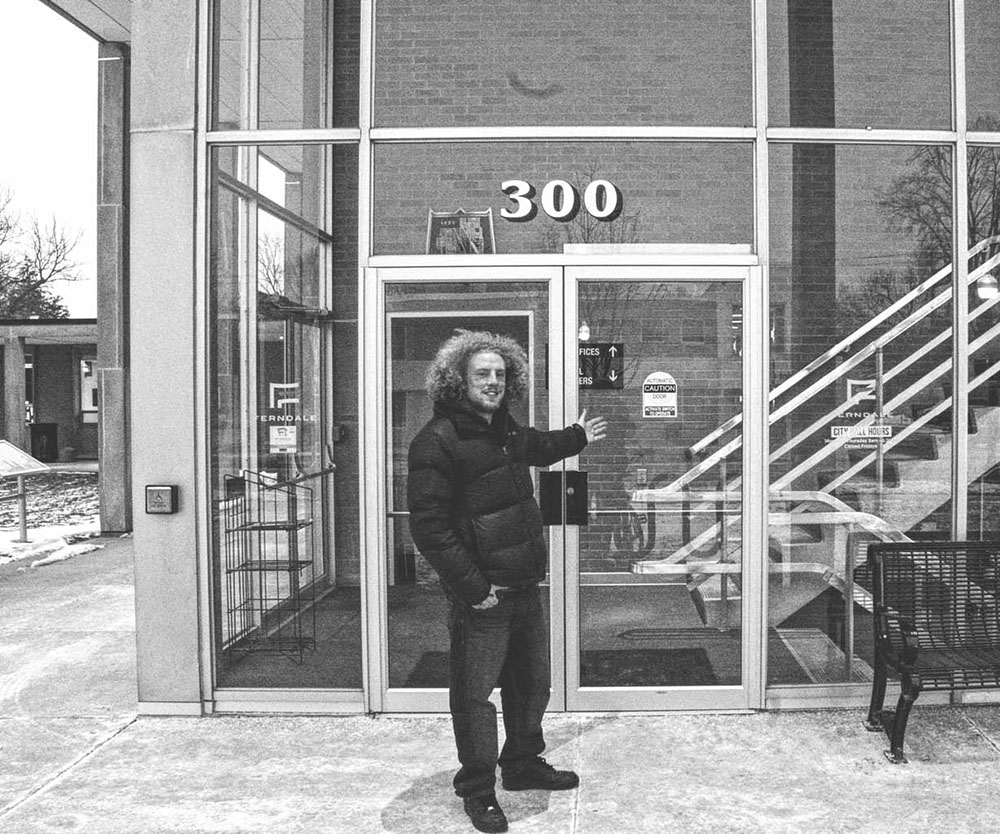Story by Jeff Lilly & Derek Lindamood
Photos by Fifth Estate
It was 1965, two years before the Summer of Love, but the cultural revolution was already in full swing. 17-year-old Harvey Ovshinsky took a summer trip to California that year, and worked at a little radical underground paper called the L.A. Free Press.
“It talked about the people and things the straight press ignored.” He recalls. Personal freedom, anti-war, anti-establishment. When he returned to Detroit, Harvey decided to start his own underground paper, and named it after the coffee shop above the L.A. Free Press’s offices. Thus was born the Fifth Estate. The first issue, all of eight pages, rolled off the press in November of 1965.
The strain of attending college and publishing soon wore Harvey out, and he enlisted the help of similar-minded radicals. Among them was Peter Werbe, at the time a 20-something college dropout and already a seasoned agitator.
“I started it, Peter saved it.” Harvey explains. “I was burning the candle at both ends.”
The late ‘60s were a heady and fruitful time for radical publishing. Around 500 underground papers were in print. The Fifth Estate boasted a circulation in the tens of thousands, sold in head shops and on street corners by dedicated youth. The struggle against authority was real and visceral. Copies were sent to GIs serving in Vietnam, calling for them to desert. During the chaos of the 1967 Detroit Black Rebellion, the Fifth Estate office, then located on Warren Avenue near Wayne State University, was attacked and gassed by the National Guard.
“We had a situation, there in the late ‘60s and early ‘70s, where we thought we might achieve both worldwide revolution and the Age of Aquarius.” Werbe explains. But trouble was coming. Ovshinsky had left the paper in April of 1968 for his alternative service as a conscientious objector after being drafted, leaving Werbe and the others to soldier on. Things fell apart in 1972, after “The re-election of the war-criminal, Nixon.” Underground papers, bereft of direction, folded one by one.
By 1975, nearly alone, the Fifth Estate took a sharp turn toward anarchism. While revolution and struggle were always themes, anarchy became more central to the paper’s identity.
 Just what is anarchism? You might picture bomb-tossers in silent films, but in Werbe’s words, it is a “Utopian sense that society could move beyond its negative aspects: violence, war, poverty. The Spanish and Italians talked about ‘the ideal.’ Anarchism is a personal code of conduct to uphold while you’re trying to bring about a different society. Neither side of the current political groups are very admirable.”
Just what is anarchism? You might picture bomb-tossers in silent films, but in Werbe’s words, it is a “Utopian sense that society could move beyond its negative aspects: violence, war, poverty. The Spanish and Italians talked about ‘the ideal.’ Anarchism is a personal code of conduct to uphold while you’re trying to bring about a different society. Neither side of the current political groups are very admirable.”
The word anarchism comes from ancient Greek, meaning “the absence of a master.” And although anarchism is commonly misunderstood as something violent, it actually aims to create a society within which individuals freely cooperate together, as equals, peacefully, opposing all forms of hierarchical control. Anarchists thus believe that without the artificial restrictions of the State and government, without the coercion of imposed authority, a harmony of interests amongst human beings will emerge.
Werbe says the magazine, now with a Ferndale address, “writes itself,” and continues to pour out articles scrutinizing issues such as expropriations of native people from their land, the role of television as a subjugation mechanism in society, and the existence of capitalism, government, and even money itself. Then, as now, it’s “published by a volunteer collective of friends and comrades. We don’t pay salaries, but we also don’t take ads.” The paper is entirely supported through subscriptions and donations.
But the field, so to speak, has shrunk considerably. The Fifth Estate continues on with a fraction of its 1960s circulation numbers. But the dream, Werbe says, is still alive.
“When you talk about preaching to the choir… there’s a real use for that.” Werbe explains. “You want to keep the congregation together. Right now, a voice within the worldwide anarchist movement that maintains its ideas and vision.”
We’re in Werbe’s office, a little room on one side of his house, the walls covered with framed posters and other memorabilia of Fifth Estate’s long run. Once the target of establishment attacks and scrutiny (the FBI held extensive files on the paper and its crew,) the Fifth Estate has found itself in the unusual position of now being honored by that same establishment. The Detroit Historical Museum and Museum of Contemprary Art Detroit (MOCAD) hosted exhibits honoring the 50th anniversary of the Fifth Estate (the DHM exhibit is still running until August 2016.) Werbe welcomes the ironic honor, even as it amazes him. He shakes his head gently, perhaps perplexedly, as he clicks through photos of the museum exhibits. Still, his collectivist ideals shine through. “Peter refused to take credit in the exhibits.” Harvey explains. “His name is nowhere.”
In the beginning, did Werbe imagine being here fifty years later, still in print, last paper standing?
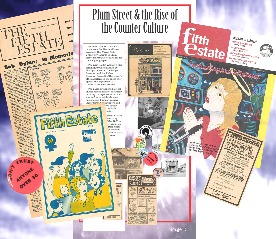 “I couldn’t even imagine being fifty years older.” Werbe says with a chuckle. Still, he has his eyes on the future. “We’re looking for the next generation… writers to help continue the magazine’s publication for the next 50 years, and also to expand its readership.”
“I couldn’t even imagine being fifty years older.” Werbe says with a chuckle. Still, he has his eyes on the future. “We’re looking for the next generation… writers to help continue the magazine’s publication for the next 50 years, and also to expand its readership.”
“I think the existence of the Fifth Estate, and Ferndale Friends, puts lie to the idea that print is dead.” Werbe says in closing. “They’re touchable, palpable, real.”
Fifty years of struggle, and many more to come. Utopia is still out there, somewhere over the horizon, and the hope has never wavered that someday, it may yet be reached.
Harvey Ovshinsky is a writer, story consultant, producer, and teacher. He is currently contributing to a biography of his father, Stanford Ovshinsky, a prolific inventor whose accomplishments include the nickelhydride battery. Read more at en.wikipedia.org/wiki/Harvey_Ovshinsky
Peter Werbe, not content with a fifty-year run publishing a paper, has also hosted Nightcall on WRIF for the last four decades (Sundays at 11:00 P.M.) as well as the Peter Werbe Show, featuring interviews, at 1:00 A.M. on Mondays on WRIF and at 6:00 A.M. Sundays on WCSX.
His website is www.peterwerbe.com
The Fifth Estate: www.fifthestate.org
If slightly happened with our health, we believe there is a solution to any maladies in a medicament. What medicines do patients purchase online? Viagra which is used to treat impotency and other states connected to erectile dysfunction. Learn more about “sildenafil“. What men talk about “viagra stories“? The most vital aspect you should look for is “sildenafil citrate“. Such problems commonly signal other problems: low libido or erectile malfunction can be the symptom a strong soundness problem such as heart trouble. Causes of sexual dysfunction include injury to the penis. Chronic disease, several medicaments, and a status called Peyronie’s disease can also cause sexual dysfunction. Even though this medicine is not for use in women, it is not known whether this treatment passes into breast milk.
 I had the opportunity to sit down with owner Mike Williams, and that was the first thing we spoke about. “I wanted to set myself apart from other barber shops around. I wanted to offer more than just haircuts but more of an experience. So I offer my customers an ‘MVP’ experience. My stylist are paid hourly like a regular job, and they get W2s just like everyone else. I didn’t want them to have to be private contractors. Ferndale is a very diverse town, and I want to provide for the community and offer jobs to people locally.”
I had the opportunity to sit down with owner Mike Williams, and that was the first thing we spoke about. “I wanted to set myself apart from other barber shops around. I wanted to offer more than just haircuts but more of an experience. So I offer my customers an ‘MVP’ experience. My stylist are paid hourly like a regular job, and they get W2s just like everyone else. I didn’t want them to have to be private contractors. Ferndale is a very diverse town, and I want to provide for the community and offer jobs to people locally.” As the conversation went on, he explained to me that instead of providing just a haircut to his customers, they also get a hot, steamed towel treatment, a massaging shampoo treatment, and a neck and shoulder massage. I had the pleasure of seeing for myself, and I can report that Sport Clips is indeed more than just a cut and dash.
As the conversation went on, he explained to me that instead of providing just a haircut to his customers, they also get a hot, steamed towel treatment, a massaging shampoo treatment, and a neck and shoulder massage. I had the pleasure of seeing for myself, and I can report that Sport Clips is indeed more than just a cut and dash. I was led to the back room and a lovely lady sat me down in a chair. The lights were dimmed and she laid my head back to rest. In my head, I was under the impression that this only happened in hair salons, but I was mistaken. She told me to close my eyes and I relaxed as she placed a hot towel around my neck and began to massage my scalp. Total bliss. I didn’t want to get up! Moments later we were done. While sitting in the barber chair I had the chance to catch the Lions game on a big screen TV directly in front of me. I had the best time of my life while getting a haircut!
I was led to the back room and a lovely lady sat me down in a chair. The lights were dimmed and she laid my head back to rest. In my head, I was under the impression that this only happened in hair salons, but I was mistaken. She told me to close my eyes and I relaxed as she placed a hot towel around my neck and began to massage my scalp. Total bliss. I didn’t want to get up! Moments later we were done. While sitting in the barber chair I had the chance to catch the Lions game on a big screen TV directly in front of me. I had the best time of my life while getting a haircut! During our conversation, Mike made mention of something I thought vitally important. “I don’t want people to have the misconception that this business is a part of a corporate chain. This location is solely owned by me. Although there are 1,500 Sport Clips nationwide, all but 40 are individually owned.” Mike hires local employees, and also sponsors local schools and events throughout the city of Ferndale. Mike is an entrepreneur and firm believer of giving back to the community, and not just pulling money from it.
During our conversation, Mike made mention of something I thought vitally important. “I don’t want people to have the misconception that this business is a part of a corporate chain. This location is solely owned by me. Although there are 1,500 Sport Clips nationwide, all but 40 are individually owned.” Mike hires local employees, and also sponsors local schools and events throughout the city of Ferndale. Mike is an entrepreneur and firm believer of giving back to the community, and not just pulling money from it.


 Offering much more than the traditional curry, India’s Millennial generation is adventurous, and the cuisine encompasses a wide variety of regional cuisines native to India. The foods included in the buffet change daily, creating a place where people who love ethnic Indian food can eat lunch regularly. The buffet, which includes salad, naan and dessert, typically includes two types of rice, two unique chicken dishes plus an Indian BBQ chicken, and two unique vegetarian dishes, as well. Given the range of diversity in soil type, climate and occupations, these cuisines vary significantly from each other and use locally available spices, herbs, vegetables and fruits. Indian food is also heavily influenced by religious and cultural choices.
Offering much more than the traditional curry, India’s Millennial generation is adventurous, and the cuisine encompasses a wide variety of regional cuisines native to India. The foods included in the buffet change daily, creating a place where people who love ethnic Indian food can eat lunch regularly. The buffet, which includes salad, naan and dessert, typically includes two types of rice, two unique chicken dishes plus an Indian BBQ chicken, and two unique vegetarian dishes, as well. Given the range of diversity in soil type, climate and occupations, these cuisines vary significantly from each other and use locally available spices, herbs, vegetables and fruits. Indian food is also heavily influenced by religious and cultural choices. If, during this winter, you find yourself cold and hungry at lunch time, the buffet offers a myriad of high-quality, uniquely-fused options at a low price. If you’re looking for something lighter, I recommend the newest dish, Chicken Pikka Wrap, which contains all the typical veggies, but is rolled up in warm naan bread, with plenty of flavors to choose from. There are 12 types of bread to choose from, including: naan with onion and coriander, ground lamb, baked with garlic, baked with almond/raisin/coconut, or cheese, or baked with Chicken Tikka. In all, there are 52 meal choices available.
If, during this winter, you find yourself cold and hungry at lunch time, the buffet offers a myriad of high-quality, uniquely-fused options at a low price. If you’re looking for something lighter, I recommend the newest dish, Chicken Pikka Wrap, which contains all the typical veggies, but is rolled up in warm naan bread, with plenty of flavors to choose from. There are 12 types of bread to choose from, including: naan with onion and coriander, ground lamb, baked with garlic, baked with almond/raisin/coconut, or cheese, or baked with Chicken Tikka. In all, there are 52 meal choices available.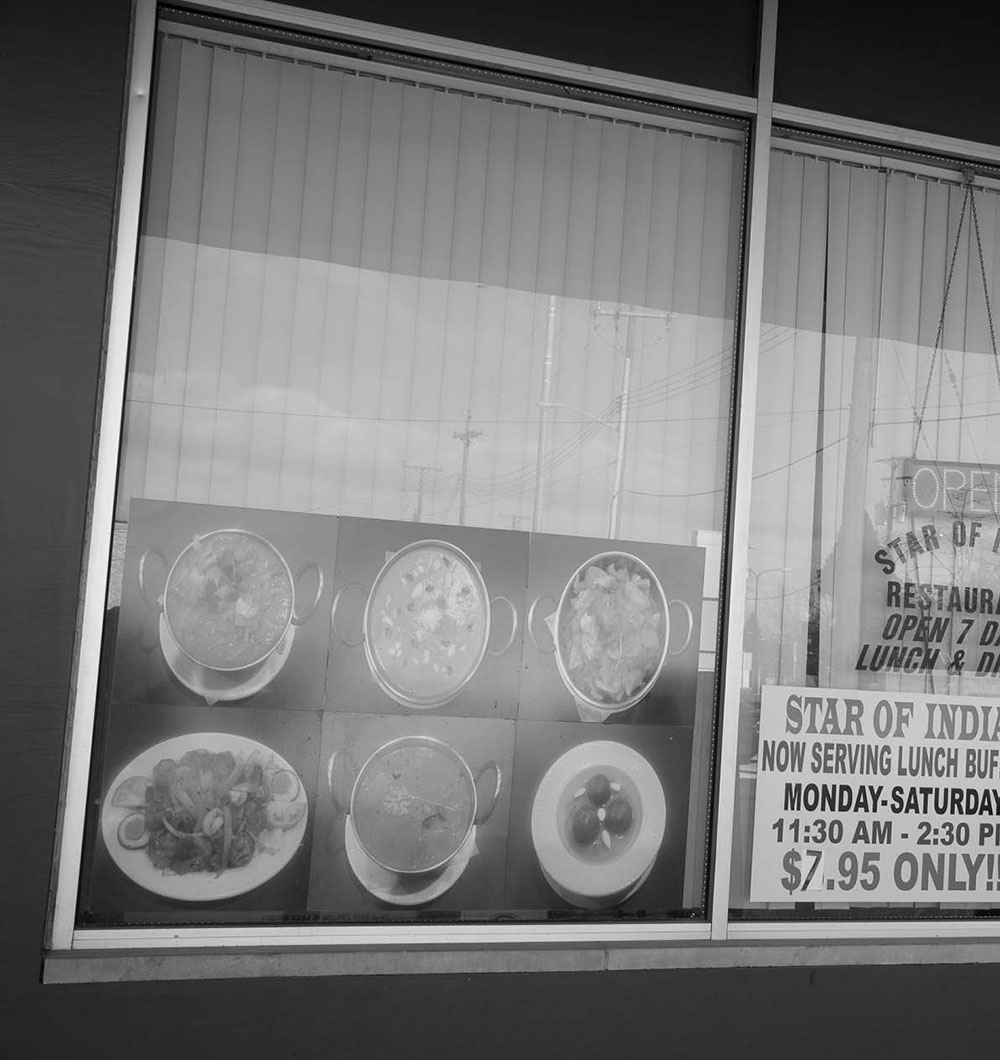
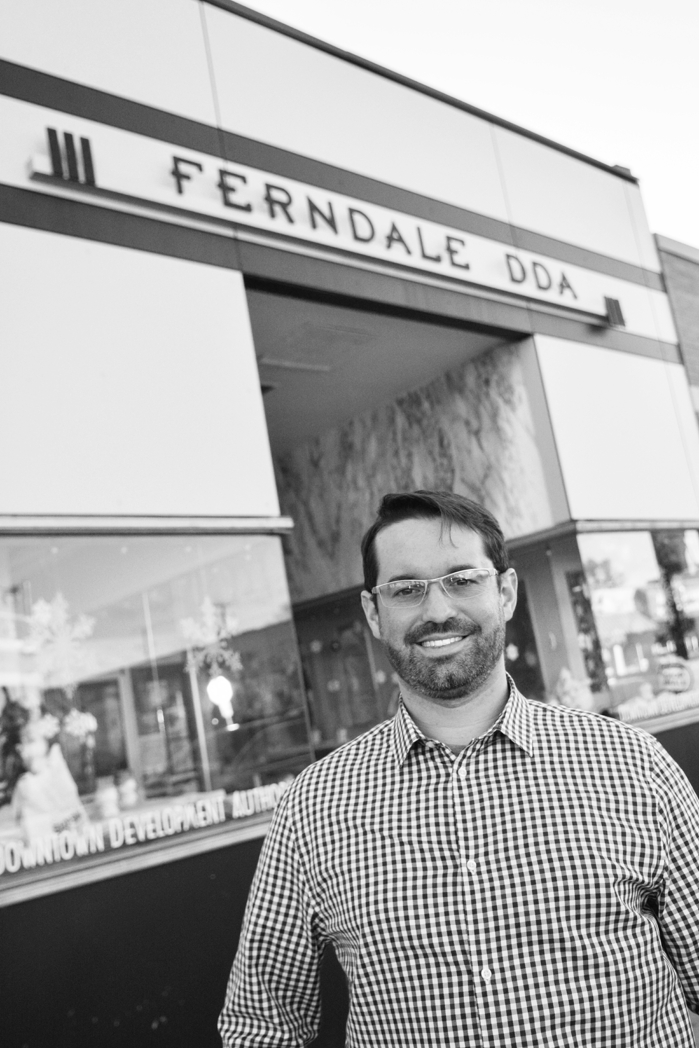

 Rufus Bartell has been instrumental in recruiting businesses to the historic district. Bartell opened Simply Casual, a boutique that sells both women’s and men’s clothing, in 1996. He says Simply Casual is a lifestyle store “for people who work hard and play hard.” He believes Detroit’s fashion has a unique style, and though he sells Detroit style clothing, he pushes the limits to bring new ideas to the city. “We have a style very unique on its own, with very different kinds of pockets. Weather influences how a lot of Detroiters dress and their simple style and taste,” Bartell explained. He collaborates with local designers and international designers from all over the world, including London, Italy, and Turkey, to name a few. Bartell says Detroit fashion is all over the place, and considers it a dress-up town. “We’ve always had a very stylish caché, dating back to our late, great Mayor Coleman Young, who was always dressed to the nines anytime you saw him,” Bartell said. In addition to clothing, Simply Casual sells bath and body products and candles made by Detroit companies.
Rufus Bartell has been instrumental in recruiting businesses to the historic district. Bartell opened Simply Casual, a boutique that sells both women’s and men’s clothing, in 1996. He says Simply Casual is a lifestyle store “for people who work hard and play hard.” He believes Detroit’s fashion has a unique style, and though he sells Detroit style clothing, he pushes the limits to bring new ideas to the city. “We have a style very unique on its own, with very different kinds of pockets. Weather influences how a lot of Detroiters dress and their simple style and taste,” Bartell explained. He collaborates with local designers and international designers from all over the world, including London, Italy, and Turkey, to name a few. Bartell says Detroit fashion is all over the place, and considers it a dress-up town. “We’ve always had a very stylish caché, dating back to our late, great Mayor Coleman Young, who was always dressed to the nines anytime you saw him,” Bartell said. In addition to clothing, Simply Casual sells bath and body products and candles made by Detroit companies. Other boutique owners on the Avenue of Fashion have also been influenced by Detroit’s creative style. Jackie Terry, owner of The Style Gallery, also pushes to the bar on what she considers Detroit fashion. “I don’t conform to what is expected from an inner city boutique. I pride myself on doing cutting edge designs, not the norm.” Terry said. She opened The Style Gallery in 2002, shortly before graduating from Wayne State University with a B.A. in fashion design and merchandising. The posh boutique’s first location was in the New Center One Building. Terry decided to relocate to Avenue of Fashion in 2011 after friends who own salons there convinced her to move. Terry says she’s happy with the area and feels there’s a good camaraderie amongst business owners. She’s also seen an increase in sales and is excited about growing her clientele. Terry creates outfits with two other designers, and works with manufactures from all over the U.S., including New York and California. The Style Gallery predominately sells women’s clothing, but also offers custom ordered men’s pieces such as shirts, suits, blazers, and hats.
Other boutique owners on the Avenue of Fashion have also been influenced by Detroit’s creative style. Jackie Terry, owner of The Style Gallery, also pushes to the bar on what she considers Detroit fashion. “I don’t conform to what is expected from an inner city boutique. I pride myself on doing cutting edge designs, not the norm.” Terry said. She opened The Style Gallery in 2002, shortly before graduating from Wayne State University with a B.A. in fashion design and merchandising. The posh boutique’s first location was in the New Center One Building. Terry decided to relocate to Avenue of Fashion in 2011 after friends who own salons there convinced her to move. Terry says she’s happy with the area and feels there’s a good camaraderie amongst business owners. She’s also seen an increase in sales and is excited about growing her clientele. Terry creates outfits with two other designers, and works with manufactures from all over the U.S., including New York and California. The Style Gallery predominately sells women’s clothing, but also offers custom ordered men’s pieces such as shirts, suits, blazers, and hats. There are also stores on the Avenue of Fashion that exclusively sell men’s clothing, for example Flagship Boutique, owned by Tarik Haygood and Joseph Lawton. The pair opened the boutique almost four years ago, and make all their t-shirts on location. Haygood owns the brand District 81 and Lawton owns the brand Joe’s Coney Island, both of which are sold at the boutique. In addition to selling t-shirts, sweatshirts, blue jeans, and jackets, the store also sells CDs by Detroit artists.
There are also stores on the Avenue of Fashion that exclusively sell men’s clothing, for example Flagship Boutique, owned by Tarik Haygood and Joseph Lawton. The pair opened the boutique almost four years ago, and make all their t-shirts on location. Haygood owns the brand District 81 and Lawton owns the brand Joe’s Coney Island, both of which are sold at the boutique. In addition to selling t-shirts, sweatshirts, blue jeans, and jackets, the store also sells CDs by Detroit artists.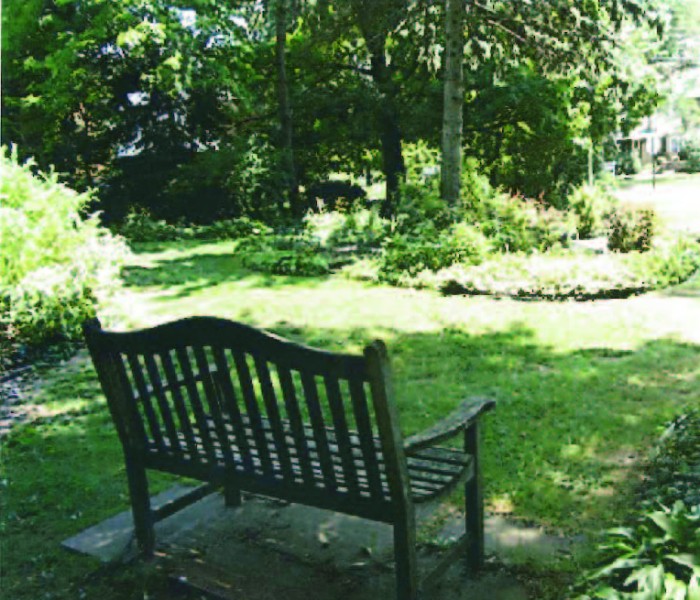
 Club member Jean Russell told about a Ferndale Seniors trip to the Rouge plant, part of the tour being a view and explanation of the plant’s huge green roof, a many-acres version of our library’s roof. Jean pointed out something about most of our own good intentions: We live near these wonderful places but often don’t visit them. She noticed more out-of-towners than locals, the foreign languages of auto show attendees being noticeable. The group tends the community garden at our north end of Livernois on Oakridge. If you haven’t strolled through there, take a wander at any time of year. I’m always fascinated by the variety of ground covers.
Club member Jean Russell told about a Ferndale Seniors trip to the Rouge plant, part of the tour being a view and explanation of the plant’s huge green roof, a many-acres version of our library’s roof. Jean pointed out something about most of our own good intentions: We live near these wonderful places but often don’t visit them. She noticed more out-of-towners than locals, the foreign languages of auto show attendees being noticeable. The group tends the community garden at our north end of Livernois on Oakridge. If you haven’t strolled through there, take a wander at any time of year. I’m always fascinated by the variety of ground covers.
 Robert: My name is Robert Primeau and I’m a 32 year old landscape designer for the U.S. Fish and Wildlife Service, where I am currently working on the design and management of infrastructure and restoration projects at the Detroit River International Wildlife Refuge, located largely in Downriver and the only multinational Refuge on the continent. I also have experience in open space preservation development, air monitoring, and wetland science. I was born and raised in Downriver but have counted Ferndale my home since 2012. I love sci-fi, standup comedy and I garden way too much.
Robert: My name is Robert Primeau and I’m a 32 year old landscape designer for the U.S. Fish and Wildlife Service, where I am currently working on the design and management of infrastructure and restoration projects at the Detroit River International Wildlife Refuge, located largely in Downriver and the only multinational Refuge on the continent. I also have experience in open space preservation development, air monitoring, and wetland science. I was born and raised in Downriver but have counted Ferndale my home since 2012. I love sci-fi, standup comedy and I garden way too much.
 Just what is anarchism? You might picture bomb-tossers in silent films, but in Werbe’s words, it is a “Utopian sense that society could move beyond its negative aspects: violence, war, poverty. The Spanish and Italians talked about ‘the ideal.’ Anarchism is a personal code of conduct to uphold while you’re trying to bring about a different society. Neither side of the current political groups are very admirable.”
Just what is anarchism? You might picture bomb-tossers in silent films, but in Werbe’s words, it is a “Utopian sense that society could move beyond its negative aspects: violence, war, poverty. The Spanish and Italians talked about ‘the ideal.’ Anarchism is a personal code of conduct to uphold while you’re trying to bring about a different society. Neither side of the current political groups are very admirable.” “I couldn’t even imagine being fifty years older.” Werbe says with a chuckle. Still, he has his eyes on the future. “We’re looking for the next generation… writers to help continue the magazine’s publication for the next 50 years, and also to expand its readership.”
“I couldn’t even imagine being fifty years older.” Werbe says with a chuckle. Still, he has his eyes on the future. “We’re looking for the next generation… writers to help continue the magazine’s publication for the next 50 years, and also to expand its readership.”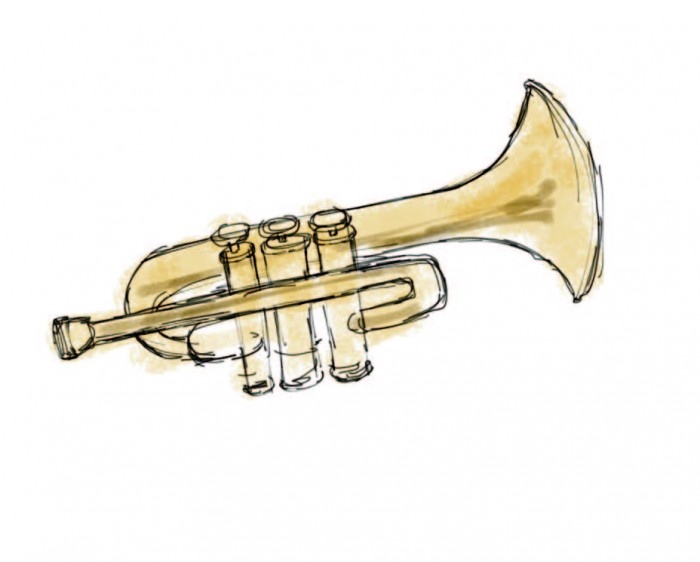

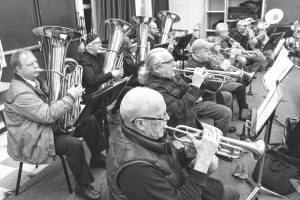 As the director of the band, I believe that Ferndale should have a community-based music school that would offer music education focused on adults that would include not only the Ferndale Community Concert Band, but a community orchestra, jazz band, and chorus. Even more important, it would include the New Horizons International Music model. New Horizons Music programs provide entry points to music making for adults, including those with no musical experience at all. Many adults would like an opportunity to learn music in a group setting similar to that offered in schools, but the last entry point in most cases was elementary school. This model is highly successful and is used worldwide. Having a program like this would allow all adults to be involved in the arts!
As the director of the band, I believe that Ferndale should have a community-based music school that would offer music education focused on adults that would include not only the Ferndale Community Concert Band, but a community orchestra, jazz band, and chorus. Even more important, it would include the New Horizons International Music model. New Horizons Music programs provide entry points to music making for adults, including those with no musical experience at all. Many adults would like an opportunity to learn music in a group setting similar to that offered in schools, but the last entry point in most cases was elementary school. This model is highly successful and is used worldwide. Having a program like this would allow all adults to be involved in the arts!
 Second place in the “Entreprenurial Challenge” went to Cameron Blackwell, Nadia Shoot and Brianne Holt, who presented a plan to revitalize the Royal Oak Township Recreation Center, which would expand services, provide career readiness classes, youth sports and a home base for local charities. First place was awarded to Zach Simpson, Jalan Thomas, Leo Sweeney, Jacob Keller, Jack Michalak and Nathan Sherman. They developed a smart phone app called “Parkit,” helping locals find parking and allow residents to rent out their driveways.
Second place in the “Entreprenurial Challenge” went to Cameron Blackwell, Nadia Shoot and Brianne Holt, who presented a plan to revitalize the Royal Oak Township Recreation Center, which would expand services, provide career readiness classes, youth sports and a home base for local charities. First place was awarded to Zach Simpson, Jalan Thomas, Leo Sweeney, Jacob Keller, Jack Michalak and Nathan Sherman. They developed a smart phone app called “Parkit,” helping locals find parking and allow residents to rent out their driveways.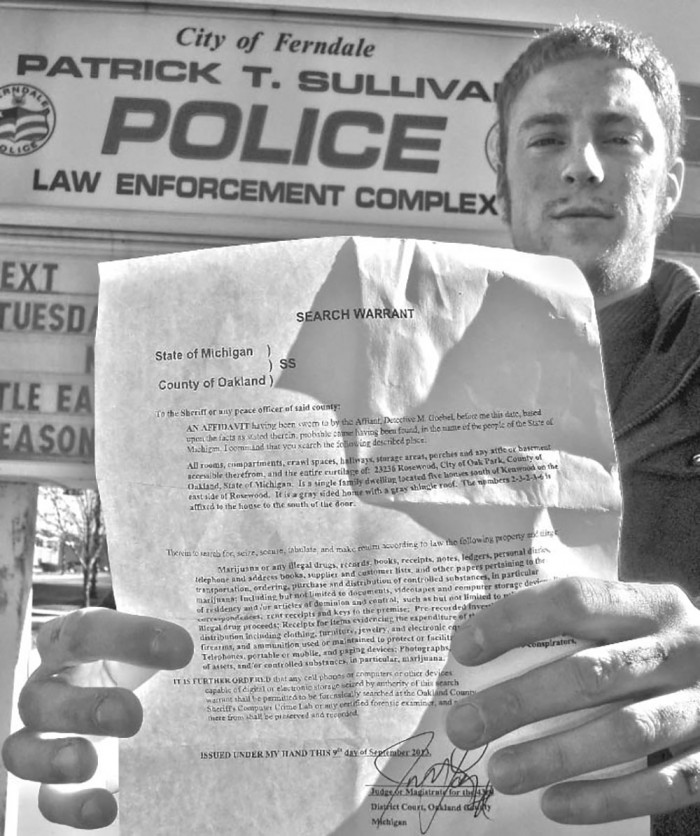
 “My biggest supporters are people who understand I’m not just a pot guy or some punk, but rather a person who wants to create change, and has done so through the democratic process of local ballot initiatives.”
“My biggest supporters are people who understand I’m not just a pot guy or some punk, but rather a person who wants to create change, and has done so through the democratic process of local ballot initiatives.”